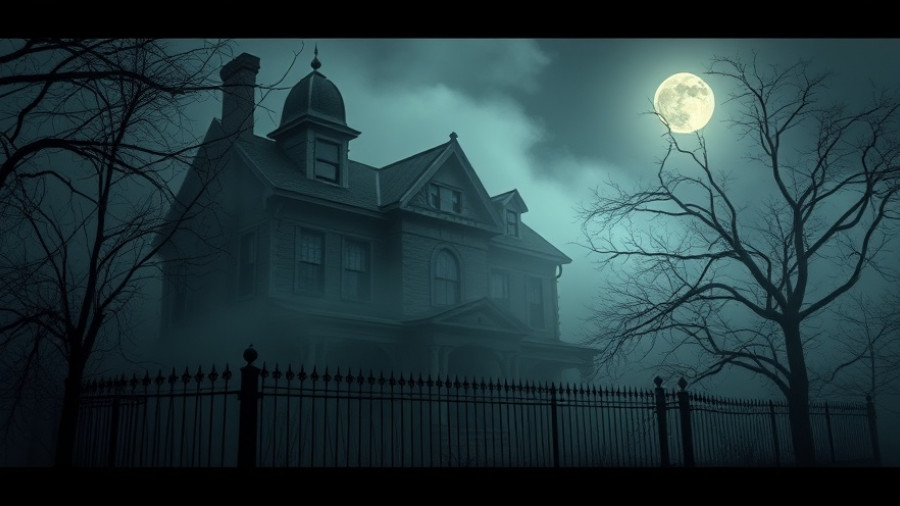
Haunted Homes: A Unique Market Challenge
As the housing market evolves, one unusual factor renowned for influencing property values is a home's spectral history. While many buyers may not actively seek out haunted houses, the mere knowledge of a potential haunting can complicate a home’s sale. In a recent survey by Real Estate Witch, more than half of potential buyers stated they would consider purchasing a haunted house, especially for a reduced price. This trend highlights a fascinating intersection of cultural beliefs and financial savvy in the realm of home buying.
The Legal Landscape of Haunted Properties
The rules governing whether a seller must disclose a home’s hauntings vary greatly across the United States. For instance, some states like Massachusetts and Minnesota do not require sellers to inform buyers about alleged paranormal activities. However, in the landmark case Stambovsky v. Ackley, the New York Supreme Court ruled that a seller must disclose a property’s haunted reputation if they are aware of it, effectively establishing what is known as the “Ghostbusters ruling.” This ruling illustrates the growing acknowledgment of the significant influence such factors can have on a property’s value.
Buyer Perspectives: Fascination vs. Fear
The divide between buyers who are unnerved by paranormal activity and those who embrace it fuels a unique market dynamic. For some, a home’s haunting may offer a quirky charm, with certain buyers excited about owning a house steeped in history. According to Realtor Joe Luciano, many buyers are enchanted by homes with colorful pasts, such as those adjacent to historical sites or with peculiar reputations. Conversely, others worry that these elements will negatively impact their living experience and investment.
Statistics Surrounding Haunted Homeownership
Statistics reveal growing awareness and acceptance of haunted homes. Recent data indicates that 19% of Americans believe they have lived in a haunted house, with 75% of those unaware of the haunting before moving in. Significantly, 57% reported discomfort with the idea of living in a haunted house, yet 74% said they would not immediately move if they discovered their home was bewitched. The numbers suggest that while hauntings may be spooky, the current high price of real estate has prompted many to reconsider their options.
Understanding Valuation Shifts in a Haunted Housing Market
For homeowners, the revelations surrounding haunted properties can be a double-edged sword. Anecdotes regarding reduced property values due to ghostly presences abound, impacting both sellers and buyers. Homes associated with tragic or shocking events, referred to as “stigmatized properties,” are often considered less desirable, leading to decreased market values. However, for resourceful homebuyers willing to pursue a bargain, these homes may offer substantial financial advantages, especially in an economic climate where home prices are inflated.
A Cultural Shift: Generational Attitudes Towards Haunted Homes
It’s interesting to note how different generations approach the idea of haunted homes. Recent surveys indicate that younger buyers, such as Millennials and Gen Z, are more open to living in homes with ghostly reputations compared to Baby Boomers. This generational shift reflects broader societal changes in attitudes toward hauntings, suggesting a blend between cultural curiosity and practical financial considerations.
In conclusion, as the real estate landscape continues to evolve, understanding the implications of hauntings on property sales becomes increasingly vital. Whether buyers are drawn in by the novelty or deterred by fear, the haunted property narrative remains a compelling layer to consider on the path to homeownership. The intersection of personal belief, cultural mystique, and financial realities creates a unique challenge for real estate professionals and buyers alike. Just remember, when considering your next home, to look past the creaking floorboards and flickering lights; they may just be a part of a charming, albeit spooky, history.
 Add Row
Add Row  Add
Add 




Write A Comment